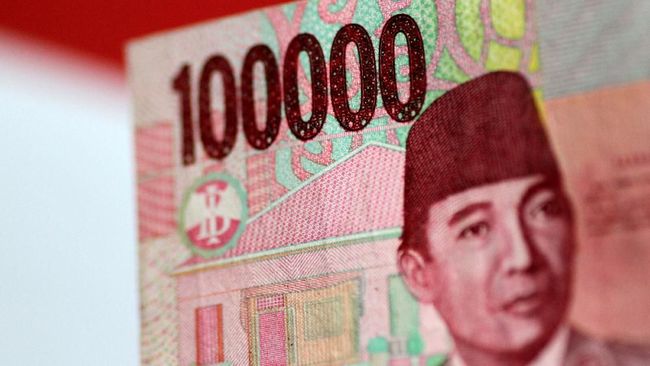Jakarta, CNBC Indonesia – During the pandemic, financial market liquidity in Indonesia is abundant, especially in banking. Unfortunately, this liquidity does not flow to the real sector.
This was highlighted by the central bank, Bank Indonesia (BI), which was conveyed by BI Deputy Governor Dody Budi Waluyo.
“We have supplied large liquidity, more or less we have supplied up to 5% of total GDP. The hope is that it will enter the real sector, but it is still stuck in the real sector,” he said in a webinar themed Synergy between the Government, BI and OJK in Accelerating National Economic Recovery. , Friday (11/19/2021).
The reason, said Dody, is still relatively low demand for credit, because the economy has not yet grown and banks are still holding back, because they are worried about the high risk from their debtors.
“The money finally settled relatively in the banking sector, revolved in the financial sector, went into bonds and some investors and put it in the stock market, bonds, property and most banks put it back in BI,” explained Dody.
“That’s where the round of liquidity has not been channeled to the real sector,” he continued.
Therefore, Dody claims BI is trying to take an approach so as not to let liquidity revolve only at the macroeconomic level.
BI tries to map out which sectors are productive and safe, support economic growth, exports, and are safe in terms of vaccination coverage.
From there, BI tries to communicate the real sector directly to its banks. “Sometimes banks have difficulty finding good debtors to finance. There is an asymmetry of information that is maintained,” he said.
“This KSSK together with the government looks at sectors to attract the economy, and is assisted by incentives from the financial sector. There are 8 to 24 sectors,” said Dody again.
Until November 16, 2021, BI announced that it had added liquidity or quantitative easing in banks by Rp 137.24 trillion.
Throughout 2021, BI has also purchased state securities (SBN) in the primary market for the 2021 APBN funding of Rp. 143.32 trillion in accordance with the Joint Decree (SKB) of the Minister of Finance and the BI Governor on April 16, which was extended until December 31, 2021.
The purchase consisted of Rp67.87 trillion through the main auction mechanism and Rp75.46 trillion through the Greenshoe Option (GSO) mechanism.
Credit growth in line with economic recovery
Bank Permata’s Chief Economist, Josua Pardede revealed, bank credit generally reflects real economic activity, although there is a lag or lag between economic growth and credit growth.
Although economic growth in Quarter III-2021 tends to slow down, according to Josua, credit growth at the end of Quarter III-2021 shows a trend of credit recovery.
“Where credit grew 2.21% (year on year / yoy), an increase from the end of the second quarter of 2021 which was recorded at 0.59% (yoy),” he told CNBC Indonesia when contacted.
In general, said Josua, with the increase in economic activity in line with the controlled cases of Covid-19, which is expected to boost demand and production activities of the economy.
With the increase in production capacity, the need for financing from the real sector will also tend to increase so that it will encourage credit demand.
Josua views, in some industries, credit demand is still limited due to business expansion obtained from internal funds, such as the CPO industry which has benefited from the rising trend in global commodity prices – which is experiencing a ‘cash rich’ condition so that the financing needs of the financial sector are limited.
Nevertheless, the recovery of economic sectors in 2022 is expected to tend to be evenly distributed and will encourage financing needs.
“Which will ultimately encourage an increase in the rate of credit growth next year in line with the acceleration of domestic economic recovery next year,” said Josua.
(me/me)
– .


/i/2004629056.png?f=meta)